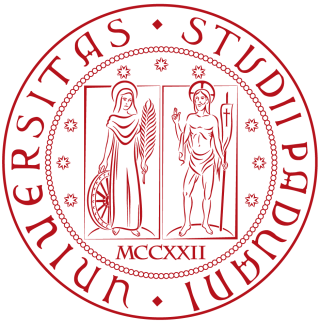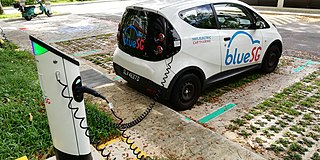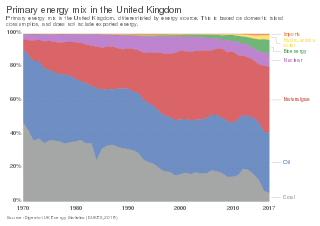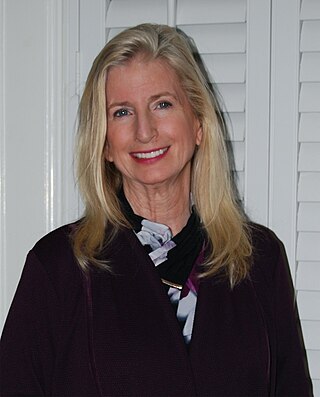Energy economics is a broad scientific subject area which includes topics related to supply and use of energy in societies. Considering the cost of energy services and associated value gives economic meaning to the efficiency at which energy can be produced. Energy services can be defined as functions that generate and provide energy to the “desired end services or states”. The efficiency of energy services is dependent on the engineered technology used to produce and supply energy. The goal is to minimise energy input required to produce the energy service, such as lighting (lumens), heating (temperature) and fuel. The main sectors considered in energy economics are transportation and building, although it is relevant to a broad scale of human activities, including households and businesses at a microeconomic level and resource management and environmental impacts at a macroeconomic level.

The University of Padua is an Italian public research university in Padua, Italy. It was founded in 1222 by a group of students and teachers from the University of Bologna, who previously settled in Vicenza, thus, it is the second-oldest university in Italy, as well as the world's fifth-oldest surviving university.

Energy development is the field of activities focused on obtaining sources of energy from natural resources. These activities include the production of renewable, nuclear, and fossil fuel derived sources of energy, and for the recovery and reuse of energy that would otherwise be wasted. Energy conservation and efficiency measures reduce the demand for energy development, and can have benefits to society with improvements to environmental issues.

Renewable energy progress in the European Union (EU) is driven by the European Commission's 2023 revision of the Renewable Energy Directive, which raises the EU's binding renewable energy target for 2030 to at least 42.5%, up from the previous target of 32%. Effective since November 20, 2023, across all EU countries, this directive aligns with broader climate objectives, including reducing greenhouse gas emissions by at least 55% by 2030 and achieving climate neutrality by 2050. Additionally, the Energy 2020 strategy exceeded its goals, with the EU achieving a 22.1% share of renewable energy in 2020, surpassing the 20% target.

Clean technology, in short cleantech or climatetech, is any process, product, or service that reduces negative environmental impacts through significant energy efficiency improvements, the sustainable use of resources, or environmental protection activities. Clean technology includes a broad range of technology related to recycling, renewable energy, information technology, green transportation, electric motors, green chemistry, lighting, grey water, and more. Environmental finance is a method by which new clean technology projects can obtain financing through the generation of carbon credits. A project that is developed with concern for climate change mitigation is also known as a carbon project.

The energy policy of the United Kingdom refers to the United Kingdom's efforts towards reducing energy intensity, reducing energy poverty, and maintaining energy supply reliability. The United Kingdom has had success in this, though energy intensity remains high. There is an ambitious goal to reduce carbon dioxide emissions in future years, but it is unclear whether the programmes in place are sufficient to achieve this objective. Regarding energy self-sufficiency, UK policy does not address this issue, other than to concede historic energy security is currently ceasing to exist.

The energy policy of the European Union focuses on energy security, sustainability, and integrating the energy markets of member states. An increasingly important part of it is climate policy. A key energy policy adopted in 2009 is the 20/20/20 objectives, binding for all EU Member States. The target involved increasing the share of renewable energy in its final energy use to 20%, reduce greenhouse gases by 20% and increase energy efficiency by 20%. After this target was met, new targets for 2030 were set at a 55% reduction of greenhouse gas emissions by 2030 as part of the European Green Deal. After the Russian invasion of Ukraine, the EU's energy policy turned more towards energy security in their REPowerEU policy package, which boosts both renewable deployment and fossil fuel infrastructure for alternative suppliers.
Energy Saving Trust is a British organization devoted to promoting energy efficiency, energy conservation, and the sustainable use of energy, thereby reducing carbon dioxide emissions and helping to prevent man-made climate change. It was founded in the United Kingdom as a government-sponsored initiative in 1992, following the global Earth Summit.

Mark Diesendorf is an Australian academic and environmentalist, known for his work in sustainable development and renewable energy. He currently teaches environmental studies at the University of New South Wales, Australia. He was formerly professor of environmental science and founding director of the Institute for Sustainable Futures at the University of Technology, Sydney and before that a principal research scientist with CSIRO, where he was involved in early research on integrating wind power into electricity grids. His most recent book is Sustainable Energy Solutions for Climate Change.

Renewable energy commercialization involves the deployment of three generations of renewable energy technologies dating back more than 100 years. First-generation technologies, which are already mature and economically competitive, include biomass, hydroelectricity, geothermal power and heat. Second-generation technologies are market-ready and are being deployed at the present time; they include solar heating, photovoltaics, wind power, solar thermal power stations, and modern forms of bioenergy. Third-generation technologies require continued R&D efforts in order to make large contributions on a global scale and include advanced biomass gasification, hot-dry-rock geothermal power, and ocean energy. In 2019, nearly 75% of new installed electricity generation capacity used renewable energy and the International Energy Agency (IEA) has predicted that by 2025, renewable capacity will meet 35% of global power generation.

Mark Kenneth Jaccard is a Canadian energy economist and author. He develops and applies models that assess sustainability policies for energy and material. Jaccard is a professor of sustainable energy in the School of Resource and Environmental Management (REM) at Simon Fraser University.
Gianni Silvestrini is an Italian researcher. From 1977 to 2014, he taught at the University of Palermo and at the National Research Council in the fields of solar technology and energy policy.
Jeong-dong Lee is a Korean academic currently serving as the Special Advisor to the President on Economy and Science since his appointment by President Moon Jae-in in January 2019. He is a professor of Interdisciplinary Graduate Program on Technology Management, Economics and Policy (TEMEP) and the Department of Industrial Engineering at Seoul National University, Korea.

Marilyn A. Brown is a Regents' and Brook Byers Professor of Sustainable Systems in the School of Public Policy at the Georgia Institute of Technology. She joined Georgia Tech in 2006 after 22 years at Oak Ridge National Laboratory, where she held various leadership positions. Her work was cited by President Clinton as providing the scientific justification for signing the 1997 Kyoto Protocol. With Eric Hirst, she coined the term "energy efficiency gap" and pioneered research to highlight and quantify the unexploited economic potential to use energy more productively.
The King Abdullah Petroleum Studies and Research Center (KAPSARC) is an advisory think tank specializing in energy economics, climate, and sustainability that seeks to advance Saudi Arabia’s energy sector and inform global policies through evidence-based advice and applied research. It is located in Riyadh, Saudi Arabia.

The Energiewende is the ongoing energy transition by Germany to a low carbon, environmentally sound, reliable, and affordable energy supply. The new system intends to rely heavily on renewable energy, energy efficiency, and energy demand management.

An energy transition is a major structural change to energy supply and consumption in an energy system. Currently, a transition to sustainable energy is underway to limit climate change. As much sustainable energy is renewable it is also known as the renewable energy transition. The current transition aims to reduce greenhouse gas emissions from energy quickly and sustainably, mostly by phasing-down fossil fuels and changing as many processes as possible to operate on low carbon electricity. A previous energy transition perhaps took place during the Industrial Revolution from 1760 onwards, from wood and other biomass to coal, followed by oil and later natural gas.
Energy modeling or energy system modeling is the process of building computer models of energy systems in order to analyze them. Such models often employ scenario analysis to investigate different assumptions about the technical and economic conditions at play. Outputs may include the system feasibility, greenhouse gas emissions, cumulative financial costs, natural resource use, and energy efficiency of the system under investigation. A wide range of techniques are employed, ranging from broadly economic to broadly engineering. Mathematical optimization is often used to determine the least-cost in some sense. Models can be international, regional, national, municipal, or stand-alone in scope. Governments maintain national energy models for energy policy development.
Leonardo Meeus is a Belgian academic who studies Nonmarket Strategy, EU Energy Policy and Energy Economics. He is the Director of the Florence School of Regulation and professor at the European University Institute, Florence, Italy, in the Robert Schuman Centre for Advanced Studies and Director of the Energy Centre at Vlerick Business School in Brussels, Belgium.
Catherine D. Wolfram is an American micro-economist, academic and researcher. Catherine Wolfram was named in March 2021 as the United States Department of the Treasury Deputy Assistant Secretary for Climate and Energy Economics She is the Cora Jane Flood Professor of Business Administration and associate dean for academic affairs at the Haas School of Business at University of California, Berkeley where she also serves as a faculty director of The E2e Project and as scientific director for energy and the environment at Center for Effective Global Action. She also directs the National Bureau of Economic Research's Environment and Energy Economics Program.












